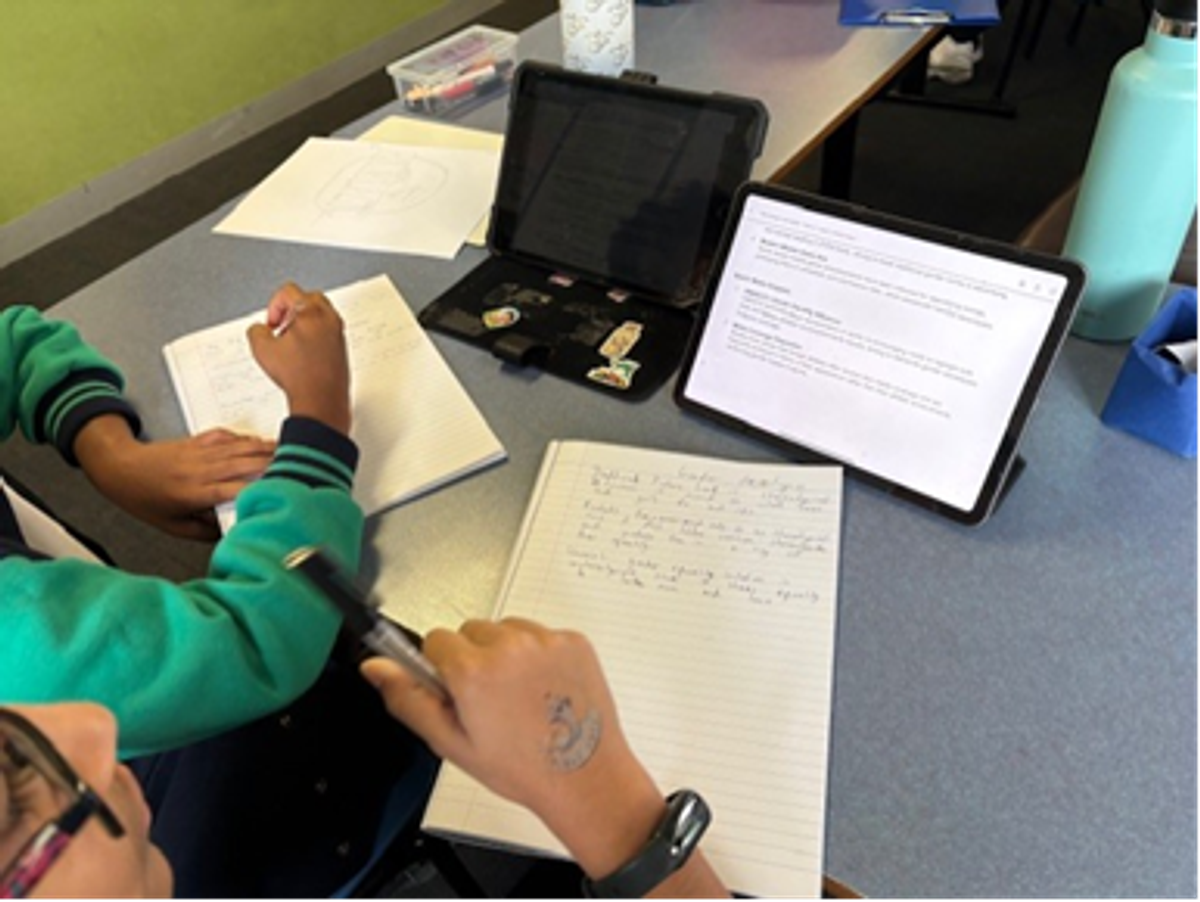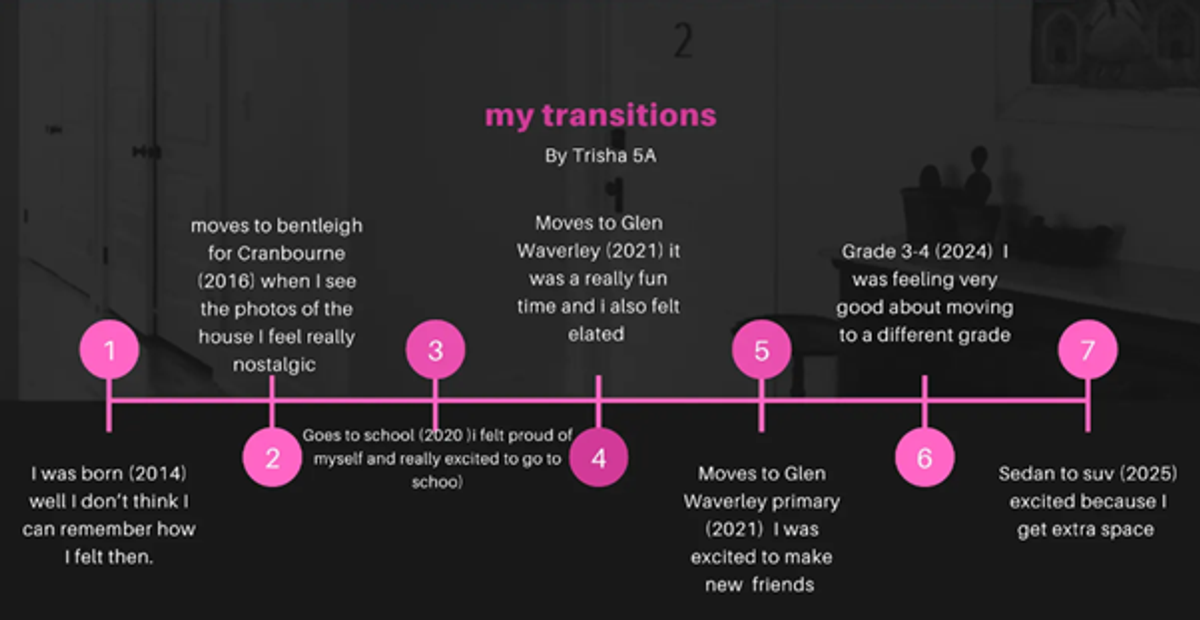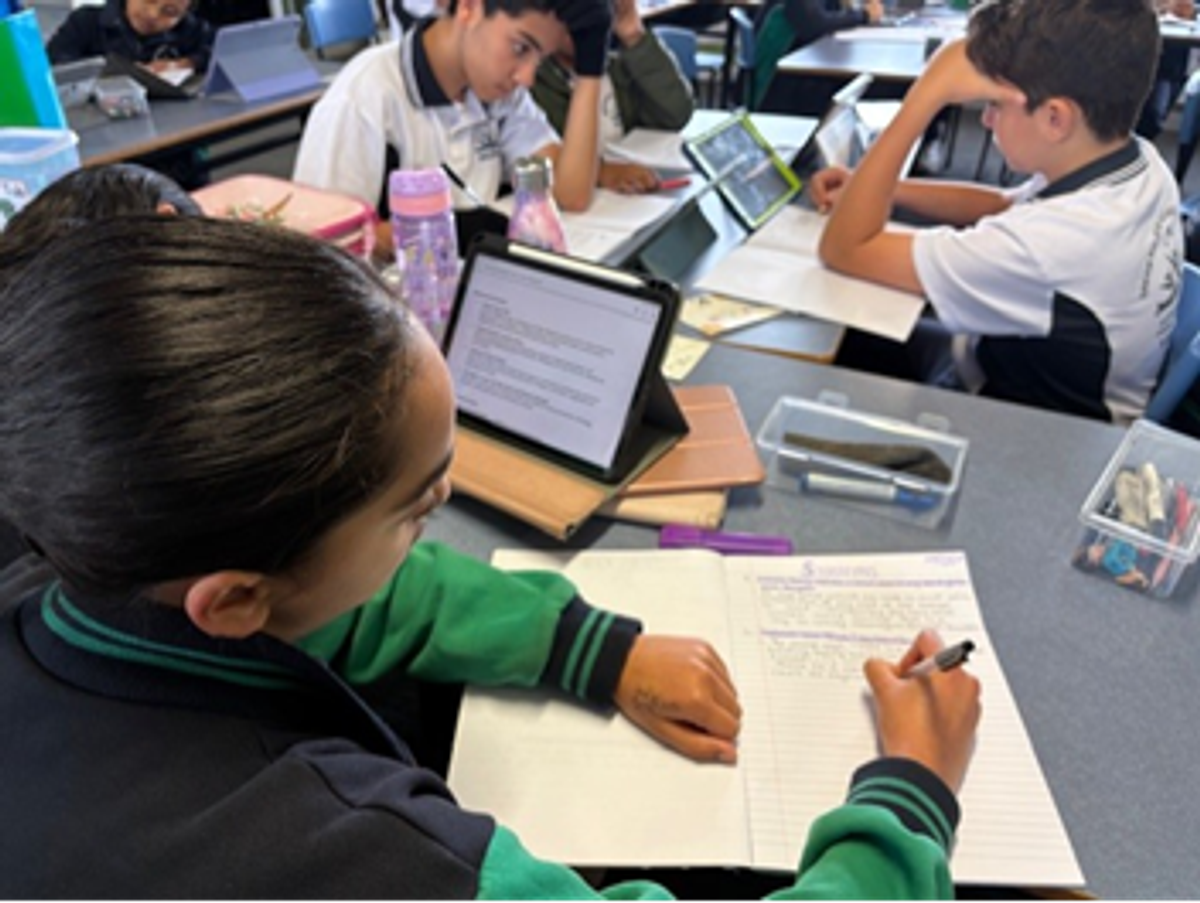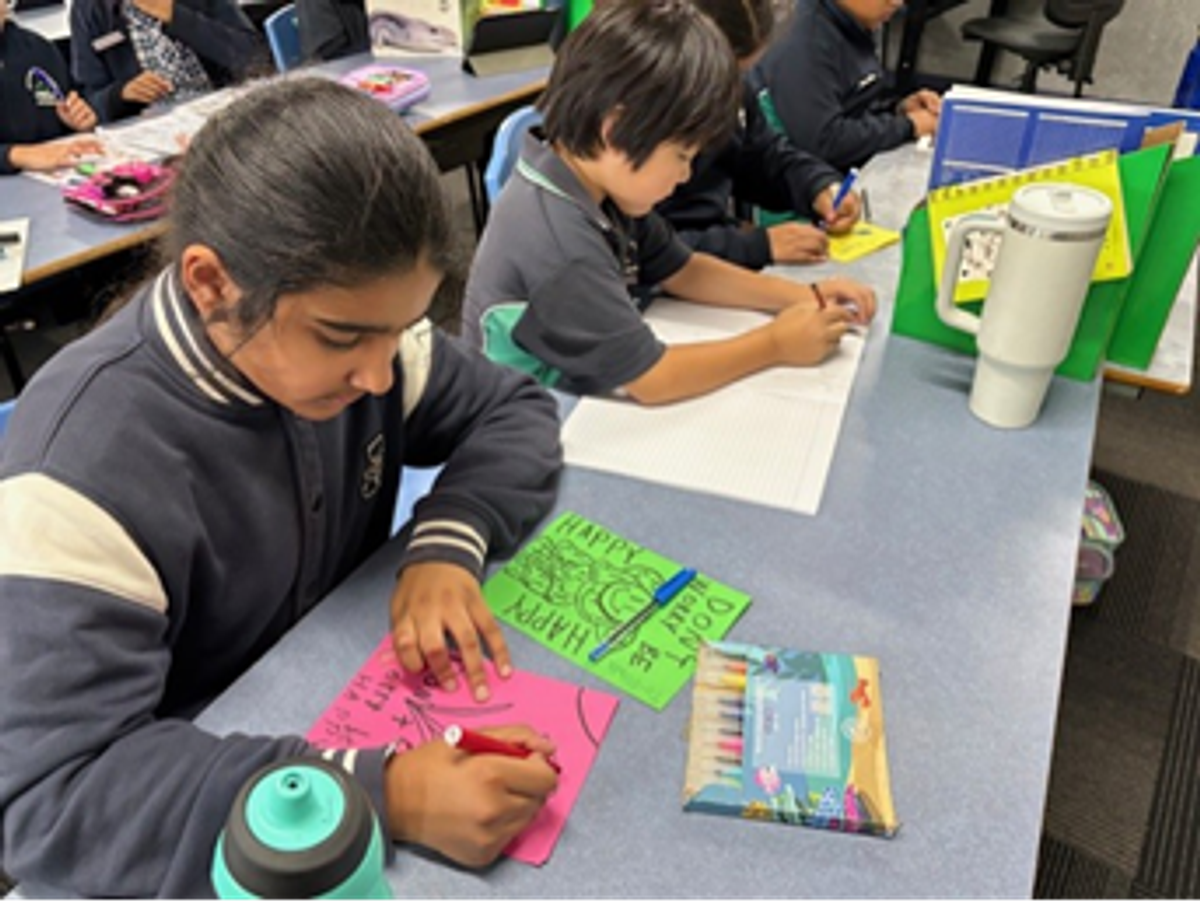Mind, Body, Us (MBU)

We’re excited to welcome everyone back for Term Two and to share what our students will be exploring in Mind, Body and Us (MBU) across all year levels. This term, our whole school MBU focus is ‘Relationships and Challenges.’ It is all about building life skills that help students thrive both in and out of the classroom. From celebrating individuality and kindness in Prep, to learning about respectful friendships and fair play in the junior years, and tackling big topics like stereotypes, consent, and emotional regulation in the senior years—every student will be developing important skills to support their wellbeing and relationships. Through fun, age-appropriate activities like games, role-playing, group discussions, and creative projects, students are learning how to navigate friendships, understand themselves and others, and become confident, respectful members of our school community. We look forward to a fantastic term of growth, connection, and learning!
Prep
As part of our Mind, Body and Us program in Term Two, the Prep students are exploring important life skills through three engaging themes. They will develop a deeper understanding of themselves and their relationships with others through celebrating what makes them unique, identifying important people in their lives, and learning ways to show kindness and respect. They will discover the value of rules, turn-taking, and making everyone feel welcome through teamwork games and role-playing activities. Students will also learn about personal space, asking for permission, and confidently saying "no" in a respectful way. These lessons help our students build self-awareness, empathy, and positive social skills that they use every day!
Curriculum Links:
- Investigate who they are and the people in their world VC2HPFP01
- Follow rules to promote fair play and inclusion in a range of physical activities VC2HPFM04
- Explore how to seek, give or deny permission respectfully when sharing possessions, personal space or body autonomy VC2HPFP05
Key Vocabulary: Self-awareness, Kindness, Respect and Empathy
Year 1
In Term Two, the Year One students are developing essential social skills in Mind, Body and Us. They will explore what makes them unique, recognise the important people in their lives, and learn about growing up and changing. Students will engage in discussions that will help them reflect on their identity and relationships. They will explore cooperation and teamwork through turn-taking, problem-solving, and working together through fun games, role-playing, and group discussions. Students will learn what makes a good friend, the importance of including others, and how to celebrate differences through games and discussions. These lessons support students in developing kindness, cooperation, and confidence in their daily interactions.
Curriculum Links:
- Apply strategies to work cooperatively when participating in physical activities VC2HP2M05
- Describe their personal characteristics and those of others, and explain how they contribute to developing identities VC2HP2P01
- Describe physical and social changes that occur as children grow older and discuss how family and community acknowledge these VC2HP2P02
- Identify and explore personal and social skills and strategies to develop respectful relationships VC2HP2P03
Key Vocabulary: Cooperation, Teamwork, Inclusion and Empathy.
Year 2
In Term Two, the Year Two students are exploring important life skills through three engaging themes in our Social and Emotional Learning program in Term Two. In Growth and Change, they learn about how they grow physically and socially, how friendships evolve, and how families and communities celebrate milestones. Activities like timeline drawings, role-playing, and discussions help students reflect on their own growth and relationships. In Respect and Relationships, they discover what makes a respectful friendship, how to resolve conflicts kindly, and the importance of including others. Through stories, discussions, and teamwork activities, they build empathy and communication skills. Finally, in Fair Play and Cooperation, students learn about playing fairly, showing good sportsmanship, and making sure everyone feels included in games. They practice teamwork through brainstorming fair play rules, role-playing winning and losing, and supporting classmates in play. These lessons help students develop kindness, respect, and cooperation in everyday interactions.
Curriculum Links:
- Describe physical and social changes that occur as children grow older and discuss how family and community acknowledge these VC2HP2P02
- Identify and explore personal and social skills and strategies to develop respectful relationships VC2HP2P03
- Co-construct and apply rules to promote fair play and inclusion in a range of physical activities VC2HP2M04
Key Vocabulary: Growth and Change, Respect and Relationships, Fair Play and Cooperation.
Year 3
In Term Two, students will build essential relationship and safety skills through engaging activities in our Social and Emotional Learning program. They will focus on building and strengthening relationships, by exploring how kindness, cooperation, and valuing diversity help friendships grow. Activities like the Friendship Web and Diversity Tree will help students understand the importance of inclusion. Through investigating protective behaviours and help-seeking strategies, students will learn how to recognise safe and unsafe situations, identify trusted people, and apply protective behaviours both online and offline. Through role-playing and discussions, they will practice responding to different scenarios and seeking help when needed. Additionally, students will focus on teamwork, good sportsmanship, and creating fair and inclusive game rules. They will participate in fun challenges, design fair games, and develop strategies to promote respect and fairness in all activities. These lessons will support students in developing confidence, empathy, and problem-solving skills in everyday life.
Curriculum Links:
- Describe and apply protective behaviours and help-seeking strategies in a range of online and offline situations at home, school and in the community VC2HP4P08
- Select, use and refine personal and social skills to establish, manage and strengthen relationships VC2HP4P04
- Describe how valuing diversity influences wellbeing and identify actions that promote inclusion in their communities VC2HP4P05
- Apply rules and scoring systems to promote fair play and inclusion when participating in or designing physical activities VC2HP4M09
Key Vocabulary: Building and Strengthening Relationships, Protective Behaviours, Help-seeking Behaviours, Fair Play
Year 4
In Term Two, the Year Four students will focus on understanding how stereotypes influence our choices and actions, especially in friendships, teams, and society. They will explore the impact of stereotypes through discussions, role-plays, and debates, learning how these beliefs shape decisions and how to challenge them. Students will create pledges to break stereotypes in their community and reflect on how they can make fair choices. They will also practice seeking, giving, and denying permission in different settings, emphasising respectful communication and digital safety. Students will role-play how to say "no" respectfully, discuss how to respond when someone ignores their permission, and develop strategies for handling challenges. The term concludes with a focus on teamwork, social and emotional changes, and problem-solving in challenging situations, helping students develop coping strategies and respect for different roles in a team.
Curriculum Links:
- Describe how choices and actions can be influenced by stereotypes VC2HP4P03
- Practise and refine strategies for seeking, giving and denying permission respectfully and describe situations when permission is required across multiple settings (including online and offline) VC2HP4P07
- Perform a range of roles in respectful ways to achieve successful outcomes in group or team movement activities VC2HP4M10
- Plan, rehearse and reflect on strategies to cope with the different changes and transitions they experience, such as physical, social and emotional changes VC2HP4P02
Key Vocabulary: Stereotypes, Coping Strategies, Teamwork, Respectful Communication.
Year 5
In Term Two, the Year Five students focus on managing personal and social changes, life transitions. They explore the concept of diversity, mapping the different cultures and backgrounds in their classroom, and discuss the importance of respecting diverse perspectives. Students will also focus on strategies to promote inclusion, to foster an inclusive environment. They engage in teamwork challenges to develop positive group dynamics and reflect on how to make others feel valued. Additionally, they explore strategies for managing personal changes and transitions, including creating a support guide for navigating life changes. Later in the term, students focus on consent, learning how to seek and respect consent in everyday situations, including online and offline contexts. Through roleplay and discussions, they practice communicating consent clearly and respectfully, and work together to create guidelines for responsible online communication.
Curriculum Links:
- Investigate resources and strategies to manage changes and transitions, including changes associated with puberty VC2HP6P02
- Describe and implement strategies to value diversity in their communities VC2HP6P05
- Participate positively in groups and teams by contributing to group activities, encouraging others and negotiating a range of roles and responsibilities VC2HP6M10
- Describe strategies for seeking, giving or denying consent and rehearse how to communicate their intentions effectively and respectfully across multiple settings (including online and offline) VC2HP6P07
Key Vocabulary: Diversity, Inclusion, Consent and Teamwork
Year 6
In Term Two, the Year Six students explore key concepts around gender stereotypes, fairness, inclusion, and personal wellbeing. They will investigate how gender roles are portrayed in media and society, challenge stereotypes through role-playing and sports activities, and develop leadership skills within mixed-gender teams. Students will also focus on fair play and teamwork, designing inclusive games and modifying traditional ones to promote fairness. They will reflect on how to handle situations of exclusion and practice working together effectively. Later in the term, the students will learn about protective behaviours and help-seeking strategies, identifying unsafe situations and practicing how to seek help when needed. They will also explore how to manage physical, emotional, and social changes, and develop strategies for emotional regulation in challenging situations. This term will help students build important life skills to navigate their personal and social lives with confidence.
Curriculum Links:
- Investigate how the portrayal of societal roles and responsibilities can be influenced by gender stereotypes VC2HP6P03
- Devise and test rules and game modifications to support fair play and inclusive participation VC2HP6M09
- Explain and apply protective behaviours and help-seeking strategies that can be used in a range of online and offline situations at home, school and in the community VC2HP6P08
- Investigate resources and strategies to manage changes and transitions, including changes associated with puberty VC2HP6P02
Key Vocabulary: Gender Stereotypes, Fair Play, Protective Behaviours and Emotional Regulation.
How can you support your child’s Mind, Body and Us learning at home?
- Family Discussions: Have open conversations about friendships, inclusion, kindness, and respecting differences. Share personal stories about friendships and challenges growing up.
- Practice Turn-Taking and Fair Play: Play simple board games or outdoor games together, encouraging fair turns, teamwork, and positive reactions to winning or losing.
- Celebrate Uniqueness: Create a "Family Strengths" poster or collage where each family member highlights what makes them special.
- Role-Playing Scenarios: Practice saying "no" respectfully, asking for permission, and handling peer pressure with role-play games at home.
- Promote Diversity and Inclusion: Explore different cultures through books, movies, food, or music, and talk about the importance of valuing and respecting differences.
- Support Emotional Regulation: Teach simple strategies like deep breathing, using a feelings chart, or creating a "calm down" space at home to manage big emotions.




